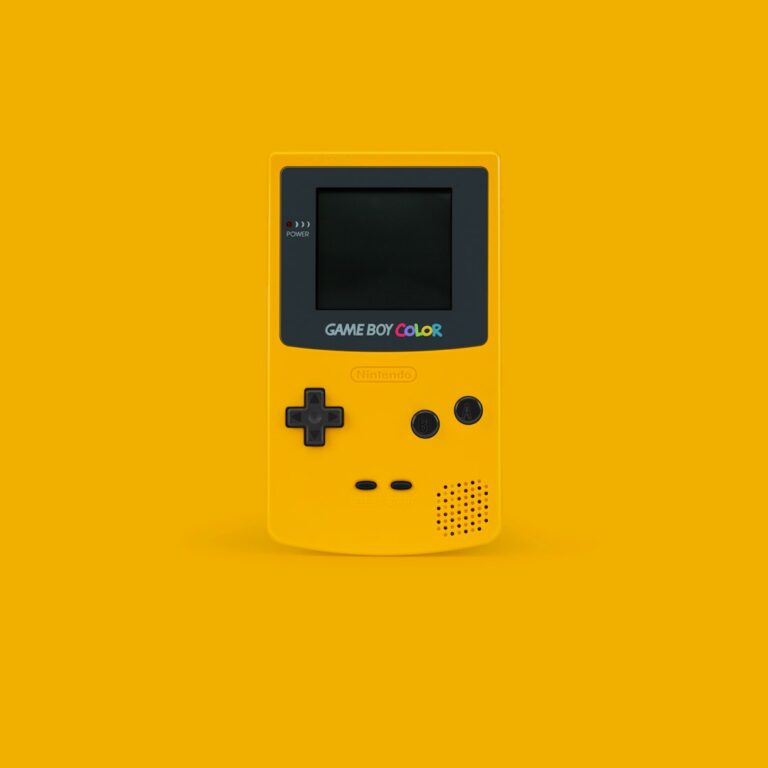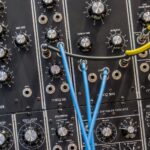Support our educational content for free when you purchase through links on our site. Learn more
Unlocking the Secrets of Synthesizers: 10 Must-Know Insights for 2024 🎹
Welcome to the vibrant world of synthesizers! If you’ve ever found yourself entranced by the pulsating beats of electronic music or the ethereal soundscapes of ambient tracks, you’re not alone. Synthesizers have become the backbone of modern music, shaping everything from pop hits to cinematic scores. Did you know that the legendary Yamaha DX7, released in 1983, was responsible for over 50% of all pop songs in the 80s? That’s a staggering impact for a single instrument!
In this comprehensive guide, we’ll dive deep into the fascinating history, types, and workings of synthesizers. Whether you’re a seasoned musician or just starting your sonic journey, you’ll discover invaluable tips and tricks to help you choose the perfect synthesizer for your style. Plus, we’ll reveal our top 10 synthesizers you absolutely need to know about in 2024! So, are you ready to unleash your creativity and explore the endless possibilities of sound? Let’s get started!
Key Takeaways
- Understanding Synthesizers: Synthesizers generate and manipulate sound using oscillators, filters, and envelopes, allowing for a vast range of sonic possibilities.
- Types of Synthesizers: Explore different types, including analog, digital, hybrid, and software synthesizers, each offering unique sound characteristics and features.
- Choosing the Right Synth: Consider your music style, budget, and desired features to find the perfect synthesizer that resonates with your creative vision.
- Top Picks for 2024: Discover our curated list of 10 must-know synthesizers that cater to various genres and skill levels.
- Beginner Tips: Embrace experimentation, start with presets, and connect with other musicians to enhance your learning experience.
Ready to dive deeper into the world of synthesizers? 👉 Shop top synthesizer brands like Korg, Moog, and Roland to find the perfect instrument for your musical journey! 🎶
Table of Contents
- Quick Tips and Facts About Synthesizers 🎹
- The Evolution of Synthesizers: A Historical Journey 🎶
- Types of Synthesizers: Finding Your Perfect Match 🔍
- How Synthesizers Work: The Science Behind the Sound ⚙️
- Top 10 Synthesizers You Need to Know About in 2023 🚀
- Key Features to Look for in a Synthesizer 🔑
- Synthesizer vs. Sampler: What’s the Difference? ❓
- How to Choose the Right Synthesizer for Your Music Style 🎼
- Tips for Beginners: Getting Started with Synthesizers 🌟
- The Future of Synthesizers: Trends and Innovations 🔮
- Conclusion: Synthesizers in Your Musical Journey 🎉
- Recommended Links for Synthesizer Enthusiasts 🔗
- Frequently Asked Questions About Synthesizers ❓
- Reference Links for Further Exploration 📚
1. Quick Tips and Facts About Synthesizers 🎹
- Start with the basics: Don’t feel overwhelmed by complex features. Begin with oscillators, filters, and envelopes to understand sound creation.
- Experiment with presets: Most synthesizers come loaded with presets, offering a great starting point for exploration.
- Embrace MIDI: Learn the basics of MIDI to connect your synthesizer to your computer or other instruments, unlocking a world of possibilities.
- Listen to synth-heavy music: Immerse yourself in genres like Synth-Pop, like the iconic “Sweet Dreams (Are Made of This)” by Eurythmics here, to understand the sonic possibilities. Check out our categories for Iconic Synth Pop Songs here, 80s Synth Pop here, and more!
- Practice makes perfect: Like any instrument, mastering a synthesizer takes time and dedication.
2. The Evolution of Synthesizers: A Historical Journey 🎶
From Early Experimentation to Modern Marvels
The synthesizer’s journey is a testament to human ingenuity, a constant push to explore new sonic frontiers. From early experimental instruments to today’s sophisticated digital powerhouses, the evolution of synthesizers is a captivating tale.
Early Pioneers (Early to Mid 20th Century)
- The Theremin: Often considered the earliest electronic instrument, the Theremin (1920s) used antennas to control pitch and volume, creating eerie, otherworldly sounds.
- The Hammond Organ: While not a true synthesizer, the Hammond Organ (1935) utilized tonewheels to generate sound, paving the way for electronic instruments.
- The RCA Mark II Sound Synthesizer: This behemoth (1955) occupied an entire room and relied on punch cards for programming, yet it produced groundbreaking electronic music.
The Rise of Voltage Control (1960s-1970s)
- The Moog Synthesizer: Robert Moog’s invention (1964) revolutionized music. Voltage-controlled oscillators (VCOs), filters, and envelopes allowed for real-time sound manipulation, shaping the future of electronic music.
- The Minimoog: This portable, self-contained synthesizer (1970) became a studio and stage staple, used by everyone from Kraftwerk to Stevie Wonder.
- The ARP Odyssey and ARP 2600: These innovative synthesizers introduced new features and sonic palettes, further expanding the possibilities of electronic sound.
The Digital Revolution (1980s-Present)
- The Yamaha DX7: This groundbreaking synthesizer (1983) introduced digital FM synthesis, creating crystalline, bell-like tones that defined the sound of the 80s.
- MIDI (Musical Instrument Digital Interface): Introduced in 1982, MIDI allowed synthesizers and other electronic instruments to communicate, revolutionizing music production.
- Software Synthesizers and Beyond: The rise of computers led to software synthesizers, offering affordability and near-infinite sonic possibilities. Today, we see a resurgence of analog synthesizers alongside powerful digital instruments, blurring the lines between the past and the future.
3. Types of Synthesizers: Finding Your Perfect Match 🔍
Navigating the World of Synthesis
With countless synthesizers available, choosing the right one can feel overwhelming. Let’s break down the main types to help you find your perfect sonic companion:
1. Analog Synthesizers 🔌
- How they work: Analog synthesizers generate sound using analog circuits and voltage-controlled components.
- Sound characteristics: Known for their warm, organic, and often unpredictable sounds.
- Pros: Hands-on control, unique sonic character, often highly sought after by collectors.
- Cons: Can be expensive, may require maintenance, limited preset storage (if any).
- Examples: Moog Minimoog, ARP Odyssey, Korg MS-20
2. Digital Synthesizers 💻
- How they work: Digital synthesizers use computer processors to generate and manipulate sound.
- Sound characteristics: Known for their precise, clean, and versatile sounds.
- Pros: Affordable, wide range of sounds, extensive preset storage and recall.
- Cons: May lack the “warmth” of analog, can feel less hands-on.
- Examples: Yamaha DX7, Roland Juno-106, Korg M1
3. Software Synthesizers 🖥️
- How they work: Software synthesizers run on computers or mobile devices, using software algorithms to generate sound.
- Sound characteristics: Incredibly diverse, capable of emulating analog warmth, digital precision, and everything in between.
- Pros: Highly affordable, often free options available, nearly limitless sound possibilities.
- Cons: Requires a computer or mobile device, may have higher latency (delay) than hardware synthesizers.
- Examples: Native Instruments Massive, Xfer Serum, Spectrasonics Omnisphere
4. Hybrid Synthesizers 🧬
- How they work: Hybrid synthesizers combine analog and digital elements, offering the best of both worlds.
- Sound characteristics: Highly variable, often combining the warmth of analog with the flexibility of digital.
- Pros: Unique sonic possibilities, often sought after by experienced synthesists.
- Cons: Can be complex to use, may be more expensive than purely analog or digital options.
- Examples: Dave Smith Instruments Prophet-6, Sequential Prophet-5, Novation Peak
4. How Synthesizers Work: The Science Behind the Sound ⚙️
Demystifying the Magic of Synthesis
While synthesizers can seem like mysterious boxes of sound, understanding their basic building blocks can unlock a world of sonic creativity.
The Signal Flow: A Journey of Sound ➡️
- Oscillators: The Sound Source: Oscillators generate the raw sound waves, like the vibrating string of a guitar or the air column in a flute. Common waveforms include:
- Sine wave: Pure and smooth, the fundamental building block of sound.
- Sawtooth wave: Bright and buzzy, often used for leads and basses.
- Square wave: Hollow and woody, suitable for basses and special effects.
- Triangle wave: Mellow and warm, often used for pads and strings.
- Filters: Shaping the Spectrum: Filters act like tone controls, emphasizing or attenuating specific frequencies to shape the sound’s timbre. Common filter types include:
- Low-pass filter: Lets low frequencies pass through, creating a warm, muffled sound.
- High-pass filter: Lets high frequencies pass through, creating a thin, bright sound.
- Band-pass filter: Lets a narrow band of frequencies pass through, creating a resonant, “wah” effect.
- Envelopes: Controlling Dynamics: Envelopes shape the sound’s volume over time, defining its attack, decay, sustain, and release (ADSR).
- Attack: How quickly the sound reaches its maximum volume.
- Decay: How quickly the sound fades after the attack.
- Sustain: The volume level maintained while a key is held.
- Release: How long the sound takes to fade after a key is released.
- Modulation: Adding Movement and Expression: Modulation introduces movement and variation to the sound. Common modulation sources include:
- Low-Frequency Oscillators (LFOs): Generate repeating waveforms at sub-audio rates, used to modulate pitch (vibrato), filter cutoff (wah), or amplitude (tremolo).
- Envelopes: Can be used to modulate other parameters, creating dynamic changes in timbre or volume.
Putting It All Together: The Synthesis Process
By combining oscillators, filters, envelopes, and modulation sources, synthesizers can create a vast palette of sounds, from realistic instrument emulations to otherworldly textures. Experimenting with these building blocks is where the real magic of synthesis happens!
5. Top 10 Synthesizers You Need to Know About in 2023 🚀
From Classic Reissues to Cutting-Edge Innovations
The world of synthesizers is constantly evolving, with new instruments and software pushing the boundaries of sonic exploration. Here are 10 standout synthesizers that deserve your attention:
| Synthesizer | Type | Key Features | Why We Love It |
|---|---|---|---|
| Korg Minilogue XD | Analog/Digital Hybrid | Multi-engine oscillator, digital effects, user oscillator slots, polyphonic sequencer | Incredibly versatile and affordable, great for all levels! |
| Arturia MicroFreak | Digital | Unique touch-sensitive keyboard, diverse synthesis engines, built-in sequencer and arpeggiator | Quirky and experimental, encourages sonic exploration! |
| Behringer DeepMind 12 | Analog | 12-voice polyphony, built-in effects, extensive modulation capabilities | Powerful and affordable, delivers classic sounds! |
| Novation Peak | Analog/Digital Hybrid | Unique “Oxford Oscillator,” digital effects, powerful modulation matrix | Combines warmth of analog with digital flexibility! |
| Moog Subsequent 37 | Analog | Classic Moog sound, duophonic design, built-in sequencer and arpeggiator | Modern take on the legendary Minimoog! |
| Sequential Prophet-6 | Analog | Classic Prophet sound, polyphonic aftertouch, dual effects sections | Timeless analog warmth and character! |
| Roland Jupiter-X | Digital | ZEN-Core synthesis system, vast sound library, extensive performance features | Versatile stage piano and synthesizer! |
| ASM Hydrasynth | Digital | Wave morphing synthesis, polyphonic aftertouch, extensive modulation capabilities | A sound designer’s dream! |
| Teenage Engineering OP-1 Field | Digital | Portable design, built-in sampler and sequencer, unique tape-style workflow | Inspiring instrument for on-the-go creativity! |
| Xfer Serum | Software Synthesizer | Wavetable synthesis, intuitive user interface, extensive modulation capabilities | Powerful and versatile, a staple in electronic music! |
6. Key Features to Look for in a Synthesizer 🔑
Finding the Right Fit for Your Musical Journey
Choosing a synthesizer is a personal journey, and the “perfect” instrument depends on your individual needs and musical goals. Here are some key features to consider:
1. Synthesis Type: Shaping Your Sonic Palette
- Analog: Warm, organic, often unpredictable sounds. Ideal for classic synth sounds, experimental music, and those who enjoy hands-on control.
- Digital: Precise, clean, versatile sounds. Great for a wide range of genres, preset-based workflows, and affordability.
- Hybrid: Combines analog and digital elements for unique sonic possibilities. Appeals to experienced synthesists and those seeking the best of both worlds.
- Software: Nearly limitless sound possibilities, affordability, and convenience. Requires a computer or mobile device.
2. Polyphony: Playing Multiple Notes
- Monophonic: Plays one note at a time. Classic for basslines, leads, and creating arpeggios.
- Duophonic: Plays two notes simultaneously. Allows for basic chords and expanded melodic possibilities.
- Polyphonic: Plays multiple notes simultaneously. Essential for playing chords, pads, and complex harmonies.
3. Keyboard: Feeling the Keys
- Number of Keys: Full-size (88 keys), standard (61 keys), or compact (25-40 keys). Consider your playing style and space limitations.
- Keybed Type: Synth-action (unweighted), semi-weighted, or hammer-action. Affects the playing feel and response.
- Aftertouch: Allows for expressive control by sensing pressure applied to held keys.
4. Modulation and Control: Shaping Your Sound
- LFOs: Low-frequency oscillators for adding vibrato, tremolo, and other modulation effects.
- Envelopes: Control the attack, decay, sustain, and release of various parameters.
- Modulation Matrix: A visual representation of how different parameters can modulate each other.
5. Effects: Enhancing Your Sound
- Built-in Effects: Reverb, delay, chorus, distortion, and more can add depth and character to your sounds.
- Effects Loop: Allows you to connect external effects pedals for even more sonic possibilities.
6. Connectivity: Integrating with Your Setup
- MIDI In/Out/Thru: Essential for connecting to other MIDI devices, such as sequencers, drum machines, and computers.
- USB Connectivity: For easy integration with computers and software.
- Audio Inputs/Outputs: For connecting to audio interfaces, mixers, and other audio equipment.
7. Sequencer and Arpeggiator: Creating Rhythmic Patterns
- Built-in Sequencer: Allows you to program and play back musical phrases and patterns.
- Arpeggiator: Automatically creates repeating arpeggiated patterns from held chords.
8. Presets and Sound Library: Exploring Sonic Possibilities
- Factory Presets: Pre-programmed sounds that offer a starting point for exploration.
- User Presets: Storage for saving your custom sounds.
9. Portability: Taking Your Music on the Go
- Size and Weight: Consider your space limitations and whether you’ll be transporting the synthesizer.
- Power Requirements: Some synthesizers require AC power, while others can be powered by batteries or USB.
10. Budget: Finding the Right Value
- Synthesizers range in price from affordable to high-end. Consider your budget and prioritize the features that matter most to you.
7. Synthesizer vs. Sampler: What’s the Difference? ❓
Unraveling the Mysteries of Sound Generation
Synthesizers and samplers are both powerful tools in electronic music production, but they work in fundamentally different ways. Let’s break down the key differences:
Synthesizer: Creating Sound from Scratch
- Sound Generation: Synthesizers generate sound electronically using oscillators, filters, and other sound-shaping components.
- Sound Manipulation: Offer extensive control over sound parameters, allowing for detailed sound design and creation.
- Originality: Synthesizers excel at creating original sounds and textures, from classic analog warmth to futuristic digital soundscapes.
Sampler: Repurposing Existing Sounds
- Sound Source: Samplers use pre-recorded audio samples as their sound source.
- Sound Manipulation: While samplers offer some sound-shaping capabilities, their primary function is to trigger and manipulate pre-existing audio.
- Versatility: Samplers excel at replicating real-world sounds, from drum breaks to orchestral instruments, and can be used creatively to create unique textures and rhythms.
Key Differences in a Nutshell
| Feature | Synthesizer | Sampler |
|---|---|---|
| Sound Generation | Electronic synthesis | Playback of pre-recorded audio samples |
| Sound Design | Extensive control over sound parameters | Limited sound design capabilities |
| Originality | Ideal for creating original sounds | Best for replicating and manipulating sounds |
Choosing the Right Tool for the Job
- Synthesizers are ideal for creating original electronic sounds, exploring sound design, and adding a unique sonic signature to your music.
- Samplers are perfect for incorporating real-world sounds, creating realistic instrument emulations, and adding a human touch to electronic productions.
8. How to Choose the Right Synthesizer for Your Music Style 🎼
Finding Your Sonic Soulmate
Choosing a synthesizer is like finding a musical soulmate—it’s all about finding the instrument that speaks to your creative vision and complements your musical style. Here’s a genre-based guide to help you navigate the world of synthesizers:
Synth-Pop: Catchy Melodies and Retro Vibes
- Key Sounds: Arpeggiated basslines, shimmering pads, soaring leads, gated reverb effects.
- Synthesizer Recommendations:
- Analog/Virtual Analog: Arturia MicroBrute, Behringer Model D, Korg Minilogue XD
- Digital: Roland Juno-106, Yamaha DX7, Korg M1
EDM (Electronic Dance Music): Pulsating Rhythms and Euphoric Drops
- Key Sounds: Punchy bass drums, crisp snares, soaring supersaws, evolving soundscapes.
- Synthesizer Recommendations:
- Software: Xfer Serum, Native Instruments Massive, LennarDigital Sylenth1
- Hardware: Access Virus Ti2, Novation Peak, Elektron Analog Four
Hip-Hop: Booming 808s and Atmospheric Pads
- Key Sounds: Deep 808 bass, crisp snares, melodic leads, atmospheric pads.
- Synthesizer Recommendations:
- Software: Native Instruments Maschine, Akai MPC Software, Image-Line FL Studio
- Hardware: Roland TR-808 (or clones), Akai MPC Live II, Novation Circuit Tracks
Ambient and Cinematic: Ethereal Textures and Soundscapes
- Key Sounds: Evolving pads, shimmering textures, atmospheric soundscapes, granular synthesis.
- Synthesizer Recommendations:
- Software: Spectrasonics Omnisphere, Native Instruments Absynth, Output Exhale
- Hardware: ASM Hydrasynth, Waldorf Iridium, Mutable Instruments Clouds
Experimental and Sound Design: Pushing Sonic Boundaries
- Key Sounds: Unconventional textures, granular synthesis, modular synthesis, noise generators.
- Synthesizer Recommendations:
- Modular Synthesizers: Eurorack systems, Moog Mother-32, Make Noise 0-Coast
- Software: Max/MSP, Pure Data, Reaktor
Tips for Choosing the Right Synthesizer:
- Listen to Your Favorite Artists: Pay attention to the sounds and instruments used in the music you love.
- Experiment with Different Synthesis Types: Explore analog, digital, hybrid, and software synthesizers to find the sounds that resonate with you.
- Consider Your Budget and Workflow: Set a realistic budget and choose a synthesizer that integrates seamlessly with your production setup.
- Don’t Be Afraid to Experiment: The beauty of synthesizers lies in their versatility and endless sonic possibilities. Embrace experimentation and have fun!
9. Tips for Beginners: Getting Started with Synthesizers 🌟
Embarking on Your Synth Journey:
Venturing into the world of synthesizers can feel both exciting and overwhelming. Here are some tips to help beginners navigate the initial learning curve and unlock the creative potential of these sonic powerhouses:
1. Start with the Fundamentals:
- Oscillators, Filters, Envelopes: These three core components form the foundation of sound creation on most synthesizers. Focus on understanding how they interact and shape the sound.
- Subtractive Synthesis: A fundamental synthesis method where you start with a harmonically rich waveform and use filters to sculpt the sound.
- Basic Signal Flow: Familiarize yourself with the typical signal path of a synthesizer, from oscillators to filters, envelopes, and effects.
2. Embrace Presets and Tutorials:
- Explore Factory Presets: Most synthesizers come loaded with factory presets—pre-programmed sounds that showcase the instrument’s capabilities. Use these as starting points for exploration and sound design.
- Online Tutorials and Courses: Numerous online resources offer beginner-friendly tutorials and courses covering synthesizer basics, sound design techniques, and music theory.
3. Hands-On Experimentation is Key:
- Don’t Be Afraid to Tweak: Experiment with every knob, button, and slider to see how it affects the sound. There are no wrong answers in sound design!
- Start with Simple Sounds: Begin by creating basic waveforms like sine waves, sawtooth waves, and square waves. Gradually introduce filters, envelopes, and modulation to shape the sound.
- Record Your Experiments: Recording your sound design sessions allows you to track your progress, revisit ideas, and potentially discover unexpected sonic gems.
4. Learn Music Theory Basics:
- Understanding Pitch, Rhythm, and Harmony: Music theory fundamentals provide a framework for creating melodies, harmonies, and chord progressions, enhancing your ability to create musical phrases and compositions.
- Scales and Chords: Learning scales and chords will help you create melodic ideas and understand how different notes work together harmonically.
5. Connect with Other Musicians:
- Online Communities and Forums: Join online synthesizer communities and forums to connect with fellow enthusiasts, ask questions, share your creations, and learn from others.
- Collaborate with Other Musicians: Collaborating with other musicians, especially those who play different instruments, can broaden your musical horizons and inspire new creative ideas.
6. Be Patient and Persistent:
- Learning a Synthesizer Takes Time: Like any instrument, mastering a synthesizer requires dedication, practice, and a willingness to explore.
- Celebrate Small Victories: Acknowledge and appreciate your progress along the way. Every new sound you create or musical phrase you sequence is a step forward on your synth journey.
7. Have Fun and Embrace the Journey:
- Synthesizers Are Instruments of Exploration: Don’t be afraid to experiment, break the rules, and discover your unique sonic voice.
- The Joy of Discovery: The most rewarding aspect of learning a synthesizer is the joy of discovering new sounds, creating unique textures, and bringing your musical ideas to life.
Conclusion: Synthesizers in Your Musical Journey 🎉
In the vast world of music production, synthesizers stand out as versatile instruments that can transform your sonic ideas into reality. Whether you’re a seasoned musician or just starting your journey, understanding the various types of synthesizers, their components, and how to use them effectively will enhance your creative process.
Summary of Positives and Negatives
Positives:
- Versatility: Synthesizers can create a wide range of sounds, from lush pads to punchy basslines, making them suitable for various genres.
- Sound Design: They offer extensive control over sound shaping, allowing for unique and original sound creation.
- Portability: Many modern synthesizers are compact and easy to transport, making them ideal for musicians on the go.
Negatives:
- Learning Curve: For beginners, synthesizers can be daunting due to their complexity and the myriad of features available.
- Cost: High-quality synthesizers can be expensive, which may be a barrier for some aspiring musicians.
- Maintenance: Analog synthesizers, in particular, may require upkeep and calibration over time.
Confident Recommendation
Overall, we confidently recommend investing time in learning about synthesizers, as they can significantly enhance your musical expression. With the right synthesizer, you can unlock a world of creative possibilities and bring your musical visions to life. So, whether you’re diving into the world of synth-pop or exploring ambient soundscapes, the right synthesizer is out there waiting for you!
Recommended Links for Synthesizer Enthusiasts 🔗
- 👉 Shop Korg Minilogue XD on: Amazon | Korg Official Website
- 👉 Shop Arturia MicroFreak on: Amazon | Arturia Official Website
- 👉 Shop Behringer DeepMind 12 on: Amazon | Behringer Official Website
- 👉 Shop Novation Peak on: Amazon | Novation Official Website
- 👉 Shop Xfer Serum on: Amazon | Xfer Records Official Website
For further exploration, check out these books:
- “The Synthesizer: A Comprehensive Guide to Understanding, Programming, and Using Synthesizers” – Amazon
- “Synthesizer Basics” – Amazon
Frequently Asked Questions About Synthesizers ❓
What does a synthesizer do?
Synthesizers are electronic instruments that generate and manipulate sound. They create audio signals through oscillators, filters, and envelopes, allowing musicians to craft unique sounds from scratch or emulate existing instruments. Synthesizers can produce a wide range of sounds, making them essential in genres like electronic, pop, ambient, and film scores.
What is the difference between a keyboard and a synthesizer?
While both keyboards and synthesizers use keys to play notes, the primary difference lies in their functionality. Keyboards often refer to instruments that play pre-recorded sounds or samples, such as pianos or organs, while synthesizers generate sounds electronically. Synthesizers offer far more control over sound design and manipulation, allowing users to create original tones and textures.
What type of person is a synthesizer?
A synthesizer can be described as someone who embraces curiosity, creativity, and exploration. Much like a DJ of ideas, synthesizers connect diverse concepts and sounds to create unique musical experiences. They are often characterized by adaptability, problem-solving skills, and a passion for innovation, making them invaluable in the ever-evolving landscape of music.
What are the three types of synthesizers?
The three main types of synthesizers are:
- Analog Synthesizers: Use analog circuits to generate sound. Known for their warm tones and hands-on control.
- Digital Synthesizers: Utilize digital signal processing to create sounds. They offer precise control and versatility, often at a lower cost.
- Software Synthesizers: Run on computers and mobile devices, providing an affordable and flexible option for sound creation.
Reference Links for Further Exploration 📚
- Wikipedia: Synthesizer
- Korg Official Website
- Moog Official Website
- Roland Official Website
- Yamaha Official Website
- Arturia Official Website
- Behringer Official Website
- Novation Official Website
Feel free to dive deeper into the world of synthesizers and explore the endless possibilities they offer! Happy synthesizing! 🎶




